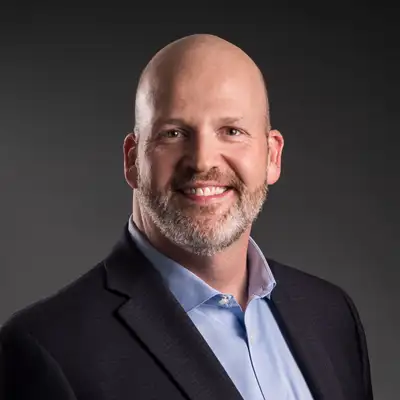- Mindset Matters: While change doesn’t come with a roadmap, your approach can guide you through.
- Vision Anchors You: A clear vision keeps you steady, even when plans shift.
- It’s About People: Open communication and encouragement help others see change as opportunity, not threat.
- Growth in Discomfort: Resistance fades when you embrace the lessons change brings.
Creators and Guests

What is The Leadership Quote-ient With Dusty Holcomb?
Hosted by Dusty Holcomb, Leadership "Quote-ient" explores the connection between powerful quotes and self-leadership. Each episode dives into timeless wisdom and its practical application, helping you grow with clarity and purpose. Designed for those striving to lead themselves and others, this podcast offers insights to guide your personal and professional journey. Join Dusty for thoughtful reflections and actionable takeaways that inspire intentional and impactful leadership.
So let's talk about change. You know, there's a, there's a quote from Charles Darwin. That's been around forever. It's not the strongest of the species that survive nor the most intelligent, but the one most responsive to change. It seems pretty straightforward, right?
Dusty Holcomb:But when you dig deeper, it really challenges how we approach our day to day lives. Change doesn't ask for permission. It kind of just barges in it or interrupts everything. And sometimes it feels like it's pushing us to make decisions. We aren't ready for.
Dusty Holcomb:I remember times when I fought against change thinking, no, this isn't right. Not now. Process was more messy than I could have imagined, but looking back those unwanted shifts, they're the very paths that brought the most growth. It wasn't immediate though. Definitely not easy either change kind of forced me to see things clearly, even when it was hard, it forced me to see that I needed to grow.
Dusty Holcomb:If you find yourself just waiting for things to change on your terms. Well, honestly, you may be waiting a long time. You can't just respond. You have to act. There's always an opportunity now nestled in the chaos somewhere.
Dusty Holcomb:It's there waiting. The real question is what are you going to do with it? Sit with that thought for a moment. You know, it's, it's funny how we resist change thinking that we have it all figured out and then boom, we're off balance, wondering how to regain our footing. It's in those moments where resistance gives way to learning.
Dusty Holcomb:That's where the magic happens. Real learning. I mean, imagine if every change was smooth, would we actually gain anything from it? Probably not. I had times, you know, not even too long ago when I thought I knew the direction that I was heading in and suddenly everything shifted.
Dusty Holcomb:I was convinced I had taken a wrong turn at first. And looking back now, I'm like, wow, dusty. That was exactly the route you needed. Even if it took you a bit longer to realize it, it's like, you know, change keeps nudging you. Till you listen, When change feels like it's cornering you, that's often where the biggest lessons are.
Dusty Holcomb:The less about strength to withstand change and more about adapting, adjusting, and embracing it. Even when it's uncomfortable, we can't dictate, you know, the the time or the form of change takes, but we can control how we receive it. And more importantly, we can control how we respond to it. Okay. So let's shift gears a bit and focus how how we can implement change strategically.
Dusty Holcomb:One of the key things I've learned about is that changes, they don't come with a roadmap, but what we can map out is our approach, our mindset when facing them. It's about being intentional and then deliberate. There's this fascinating idea that truly to lead through change, you have to start with a clear vision. It's like navigating through a storm without a compass. You don't know where you're heading.
Dusty Holcomb:That vision becomes your anchor. And often it's not about changing our goals, but adjusting the paths to reach them. But let's not forget the human element here. Change doesn't happen in silos. It's about people, the ones who make up our teams, our families, our loved ones.
Dusty Holcomb:How do you engage them? Inspire them to see this change, not as a threat, but as an opportunity, encouragement, communication. They're not just buzzwords. They're kind of critical in bringing everyone on board. That's what can turn a chaotic process into a strategic triumph.
Dusty Holcomb:Reflecting on personal experiences. I found it essential to stay open to feedback during these times and allow yourself to be vulnerable. If in these spaces, that collaboration, I mean, where adjustments are made. Innovation can stand for the most unexpected places if we're just willing to listen. So as you wrap up, today's thoughts was carried forward this mindset change, not just to adapt, but to thrive.
Dusty Holcomb:Take each shift as a chance to refine your strategy, enhance your vision, and elevate your leadership journey. Thanks for sharing this time with me. See you tomorrow.